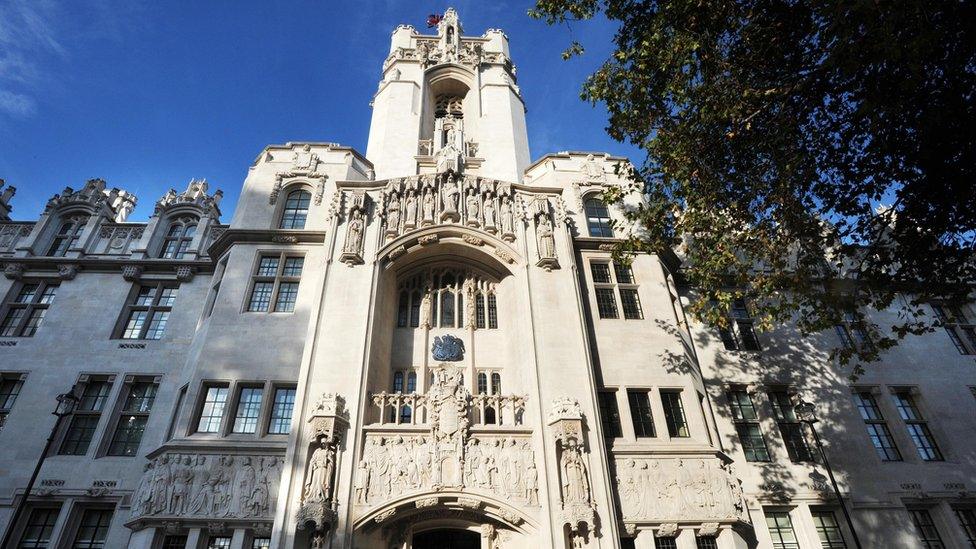'Vulnerable children are being locked up' Supreme Court hears
- Published

The Supreme Court hearing is due to last two days
Some of society's most "damaged and vulnerable" children are being "locked up" in unregistered accommodation, the Supreme Court has heard.
The "fundamental right to liberty" of these children is affected, a panel of five justices was told.
A teenager, who was placed in unregistered accommodation following a court order, has brought the legal challenge to the court.
The girl was 15 at the time of the orders.
The teenager - referred to only as T - is challenging a Court of Appeal ruling which upheld two High Court orders, that authorised Caerphilly County Borough Council to deprive her of her liberty in unregistered accommodation.
She was placed in the accommodation as there were no places available in a registered secure children's home.
Councils currently require the High Court to authorise the placing of children in unregistered housing when no registered places are available.
'Physically and emotionally scarred'
In documents before the Supreme Court, Mark Twomey QC, the girl's barrister, said: "The effect of the decision of the Court of Appeal is to permit the 'locking up' of some of society's most damaged and vulnerable children in placements that are not authorised for that purpose, in many cases not regulated at all.
"These are children who are often physically and emotionally scarred; vulnerable and forgotten," he added.
"The placements can be sub-standard, with limited checks on the staff employed."
Mr Twomey argued those affected are "confined to such a degree so as to engage their fundamental right to liberty".
He also said that "numerous" High Court judges have "felt compelled to speak out" about the lack of suitable accommodation.
In written submissions, lawyers for Caerphilly council said it does not "recognise or accept" its actions amount to "locking up" youngsters.
They said the council has "appropriately and necessarily" relied on the powers of the courts to "promote T's interests and safeguard her welfare".
The Supreme Court is being asked to consider whether it is lawful for judges to authorise a child's placement in unregistered secure accommodation and, if so, what legal tests should be applied.
The panel is also being asked to decide if a child's consent to being confined in an unregistered placement is of any relevance when a court is deciding whether to authorise such a placement.
'Falling through the gaps'
T had consented to the restrictions on her liberty in the unregistered placements and argued this meant that formal orders restricting her movements were not necessary.
But the High Court concluded that her consent was not valid and made the orders sought by the local authority.
T is now challenging those orders, arguing that she does not object to the placements, or restrictions on her liberty, but wants to be recognised as capable of consenting in law.
The case comes in the same week that High Court judge Mr Justice MacDonald warned vulnerable children with complex needs are continuing to "fall through the gaps" due to a chronic shortage of secure care placements.
The Supreme Court hearing is due to last two days, and the panel is expected to give its ruling at a later date.